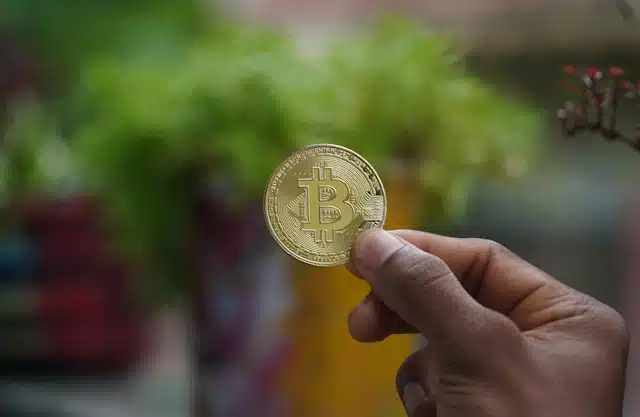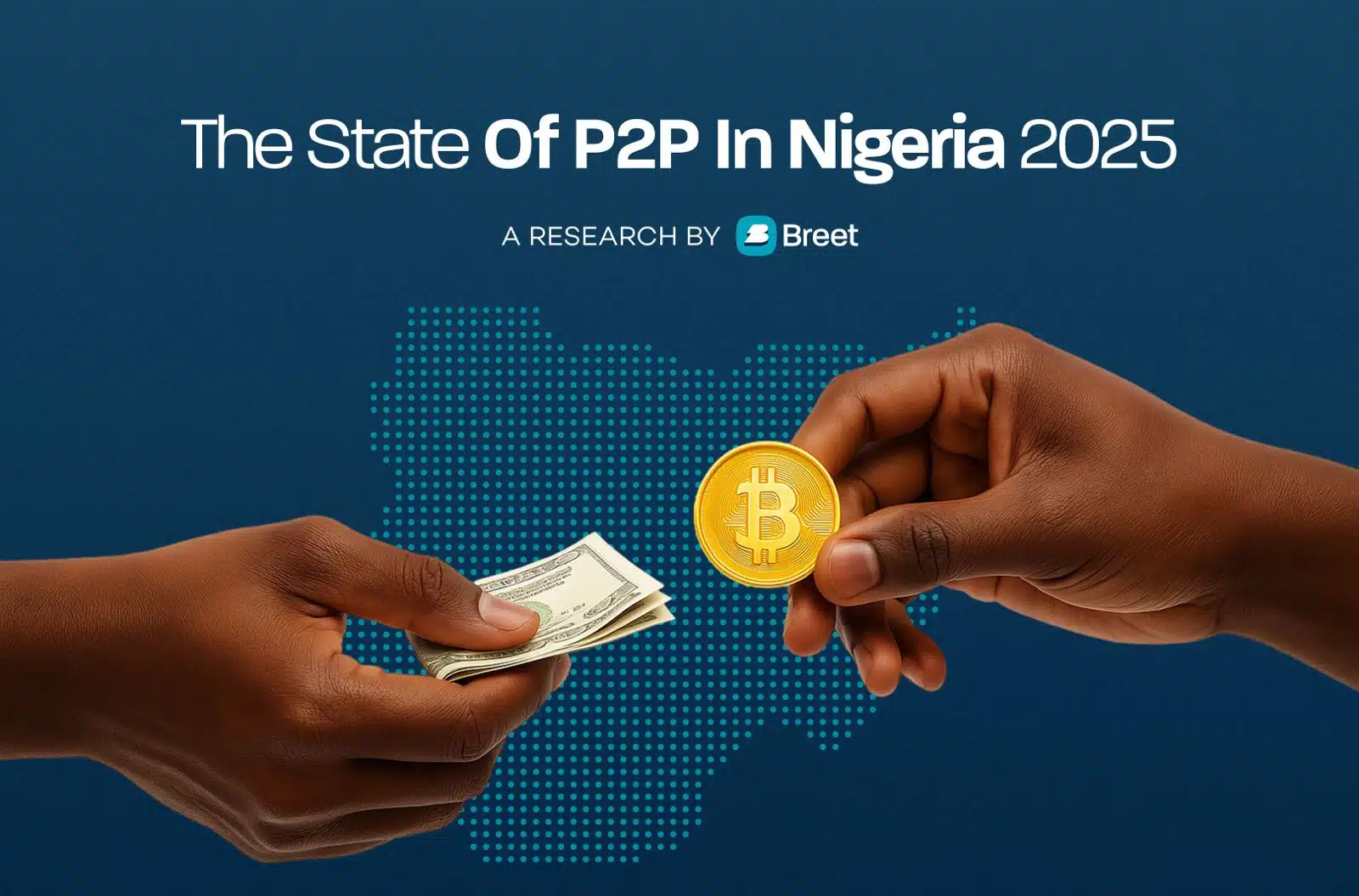The Central Bank of Nigeria (CBN) ordered Commercial Banks and other licenced financial institutions to, with immediate effect, stop facilitating transactions for cryptocurrency exchanges in Nigeria.
The apex bank stated this in a circular released on Friday, February 5, 2020, which also orders banks to close the accounts of any persons or entities found making any cryptocurrency transaction or operating a cryptocurrency exchange.
The CBN addressed the directive to Deposit Money Banks, Non-bank financial institutions, other financial institutions, and the public, alluding to the risks involved in cryptocurrency.
Let’s delve into the details of this strange statement and clear some major pain points.
What are the details behind the CBN’s crypto circular?

The CBN referenced its circular from 2017 that warned people and businesses about the risks involved with trading cryptocurrencies. Then, it told banks not to offer any crypto.
However, the regulator did not prevent crypto platforms from making use of banking and payment channels. It only demanded that crypto exchanges meet Know-your-customer (KYC) and Anti-money laundering (AML) requirements that would enable them to meet customer identification, verification, and transaction monitoring requirements.
The crux of the CBN’s 2017 message is that cryptos like Bitcoin, Ripples, Ethereum were not legal tender, and any bank that performs any crypto transaction does so at its own risk.
In its latest circular, the CBN is basically removing that decision out of the banks’ hands.
Senator Iheyen, Lead Partner at Infusion Lawyers, and President for Stakeholders in Blockchain Technology Association of Nigeria (SiBAN) states that if the CBN planned to develop this kind of measure, one would expect them to carry industry players along, and express their concerns.

Victoria Fakiya – Senior Writer
Techpoint Digest
Stop struggling to find your tech career path
Discover in-demand tech skills and build a standout portfolio in this FREE 5-day email course
“We just saw the publication from nowhere, and within the first one hour, we were trying to verify if it was authentic. It was not even on the CBN website before we knew it, they uploaded, removed, changed it, and re-uploaded again. Possibly due to a typo, they made in the first circular,” he says.
This move feels eerily familiar to the SEC’s move to regulate investment-tech companies. The Investment and Securities Tribunal served a court order to a major investment-tech startup, Chaka, and it found out about it like everyone else — on Google newsfeeds and social media.
Ihenyen considers the CBN’s move to be without due regard to existing laws and regulations. Even those previously released by the apex bank.
“The letter doesn’t explain anything; it doesn’t say that this is the reason they want you to close down the accounts of crypto customers which is markedly different from what they released in 2017,”
“There’s no law in Nigeria that criminalises crypto, but for the CBN to deny banking access to an entire industry, I see that as arbitrary, and I do not think that is legal,” he argues.
“The CBN has no right to determine which Nigerian citizen has access to financial services unless there is a law, which would be by the National Assembly, that states so. One that prevents people involved in crypto from having access to financial services.”
Ihenyen explains that Nigeria can deny terrorists access to banking services because we have an Anti-terrorism Act in Nigeria that criminalises terrorism. For crypto, however, there’s no such law.
Why is the CBN banning banks from anything crypto?

As we’ve pointed out, the CBN did not state why it is denying crypto players access to any form of financial services. The obvious reasons seem to tie in with its recent aggressive move to secure the naira, protect people from fraud and discourage money laundering, or just a political move. But, these are just educated guesses without any concrete regulator statement.
Recall that in November 2020, the CBN ordered all remittance inflows to Nigeria to be withdrawn only in dollars. It intended to reduce dollar scarcity and strengthen the naira against the dollar.
The regulator banned fintech companies from accepting remittances and muscled Azimo and Transferwise away from the market. The result? Naira fell as low as ₦396 by December 31, 2020, and is currently at ₦378/$1.
Cryptocurrencies have helped disrupt international payments, driving down costs and speed of reception. With fintech companies banned from receiving remittances, crypto seemed like the next best route.
On the other hand, it could be a political move; an offshoot of the October 2020 #EndSARS protest. Recall that when the CBN ordered banks to freeze accounts of protesters, people used Bitcoin to help keep up protests.
In October 2020 alone, Usefultips reported that Nigerians traded up to $32.5 million worth of crypto.
Ihenyen, once more, points out that no one is still sure why the CBN took that action and raises many legal questions.
Chimezie Chuta, the founder of Blockchain Nigeria User Group, argues that if the CBN’s concern is fraud and money laundering through crypto, it is totally misplaced.
“People have been laundering money with fiat long before crypto, and people still launder money with fiat even in the era of crypto.”
Centralised exchanges like Bundle, Buycoins, and Quidax demand strict KYC requirements during registration, and the onboarding process feels similar to any other fintech application.
The most rampant cases of crypto-related fraud have been tied to Ponzi schemes and dubious Initial-Coin Offerings (ICOS). This part of the market is more in the purview of the Securities and Exchange Commission.
Recall that the financial markets regulator released a statement of Intent for regulating crypto where it laudably recognised cryptocurrency as a form of security.
What happens to your crypto?
If you have any crypto investment with any of these exchanges, you can still withdraw your investments as we earlier indicated. Depending on your familiarity with the market, you could also decide to retain your funds.
Some exchanges have already assured that all cryptos are still safe in their wallets.
According to Chuta, the CBN’s order only broke off the branches that connect crypto with fiat money. That ease of access to pay with your bank card or transfer has been disconnected.
What are the implications?
Some crypto experts we discussed with assert that Nigerians would have to double down on P2P. According to Chuta, P2P is the fundamental essence of crypto, and people will have to go back to the very roots of decentralised finance.
“That essence was to provide an alternative form of finance from the politically influenced currencies issued by a central bank. The CBN has only succeeded in delaying the hands of the clock that is ticking the hands of disruption their way,” Chuta insists.
He believes the order opens the floodgates for more informal transactions and decently structured P2P exchanges to flourish.
This will not be a drastic change as crypto trading volumes most bodies report are P2P numbers. Case in point is PAXFUL ranking Nigeria as second only to the US in terms of Bitcoin trading.
P2P exchanges are the oldest form of crypto exchanges. Platforms like Napsters and BitTorrent inspired the P2P exchange model.
Platforms like LocalBitcoins and Binance connect buyers directly to sellers; they hold the crypto in escrow until the seller confirms that funds have been received.
Exchanges later evolved to fiat-to-crypto, that helped people convert fiat money to cryptocurrency. Finally, crypto-to-crypto platforms emerged with more secure channels for transactions.
For years, crypto trading in WhatsApp and Telegram groups reigned supreme in Nigeria. However, this was how several crypto scams were done. If you couldn’t find who to trust, it was so easy to fall prey to dishonest people who collect money but don’t send crypto to your wallet, or vice versa.
In 2020, several more platforms emerged, offering various exciting ways to leverage cryptocurrency in Nigeria. Most of these innovations were the products of strategic partnerships with fintech companies, banks, and global payments giants like Visa, and MasterCard.
The different reactions?
Exchanges: Following the announcement, major crypto exchanges have paused naira deposits, but withdrawals are still possible. We’ve confirmed this for Quidax, Roqqu, Bundle, Buycoins, Binance, among others.
Payments processors: Some Nigerian payments companies have released statements suspending any crypto-related transactions pending a thorough analysis of the CBN’s directive.
Investment-tech: Nigerian investment-tech startup, Trove, recently launched crypto as one of its assets class. But it announced that it had suspended offering cryptocurrencies on its platform.
Popular savings app, Piggyvest, has also suspended crypto offerings on the platform.
Crypto Communities: Some crypto communities are looking to engage regulators and policymakers, so they can define crypto’s status in Nigeria.
Photo by Bermix Studio on Unsplash











